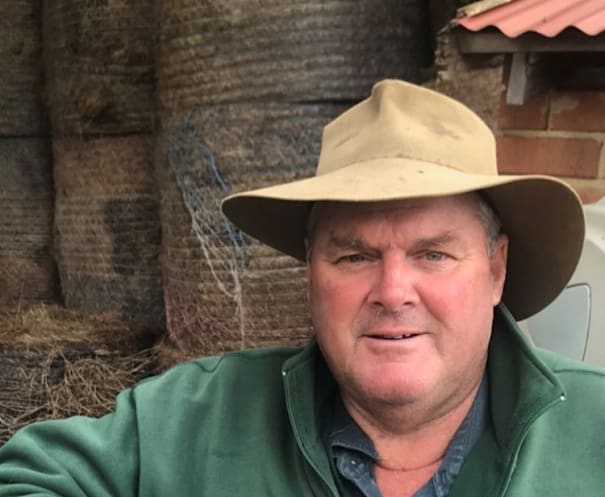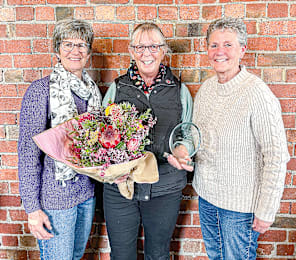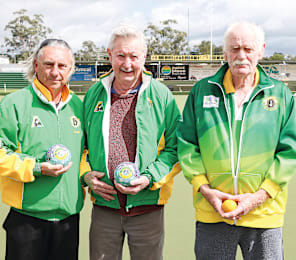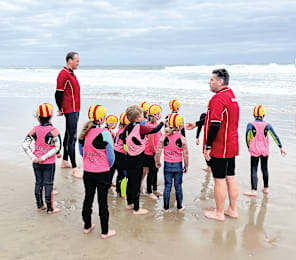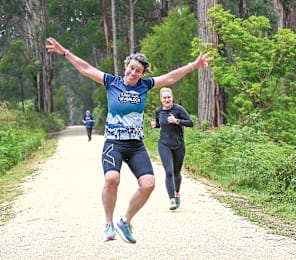FARMERS in Bass Coast are paying too much in rates, they say, and too great a share of the overall rate burden of $61 million.
The Bass Coast Shire Council seems to have acknowledged this by proposing to cut the amount of rates levied on farms from 80 per cent of the general rate this year to 75%, 70% or even 65% next year, in line with a decision taken by its neighbour, the South Gippsland Shire Council recently to drop the farm rate to 65% of the general rate.
But a rates’ cut for Bass Coast farmers is far from home and hosed.
While councillors voted unanimously at their council meeting last Wednesday to put three differential rating options out for public comment, there was already evidence of backsliding from some councillors, broadening of the debate by others and doubts thrown up by the farmers themselves as to whether they’ll actually be better off.
The sticking points include that the Bass Coast Shire Council also pays farmers a voluntary Land Management Rebate (LMR) of $16 per hectare which this year is expected to cost the shire $675,000.
So, while the council is proposing to provide a farm rate cut with one hand they’re looking at taking the rebate away with the other, potentially killing off the wide range of environmental benefits delivered by farmers from tree planting and weed management to pest and erosion control.
And, of course, any rate burden lifted off the farmers will automatically flow back to the other classes of ratepayers including homeowners, business and vacant land owners unless council cuts rates overall.
There’s fat chance of that, given comments made recently by both the Bass Coast Mayor Cr Rochelle Halstead and CEO Greg Box about the financial stress on councils as a result of the government’s rate cap and cost-shifting policies.
The farmers have a very good case for a reduction, according to outgoing president of the Bass Coast branch of the Victorian Farmers Federation, Bill Cleeland, a warrior for a fairer deal on farm rates, and his successor, Peter Miller, elected at the local branch AGM last Wednesday.
Under the rating schedule included in the 2025-26 Bass Coast Budget, farmers will be paying 6.1% more in rates than they did last year, compared to residential property owners who will pay 3.8% more, but the previous year, in 2024-25, the farmers paid a whopping 18.6% more in rates, compared to a 4.1% increase for homeowners.
According to VFF State President Brett Hosking, such increases in farm rates show the Victorian Government’s local government rate capping policy isn’t working.
“When you’ve got one group of taxpayers in some cases facing double-digit rate increases and little to no increase for others in the same area, there can be no doubt the system is flawed,” Mr Hosking said recently.
“We’ve long argued for the Victorian Government to require councils to apply the rate cap to each class of land to stop this mess,” he said.
Locally, Peter Miller and Bill Cleeland would like to see debate about the benefits of the Land Management Rebate and the virtues of cutting farm rates separated, but ultimately, they want to see the levy retained and the rates cut to 65% as a minimum.
“I don’t think the council places enough value on the rebate and what it achieves for the environment. They’re looking at paying the money out as a negative,” said Bill Cleeland, now vice president of the Bass Coast VFF.
“They’re actually getting tremendous value for money from the rebate, with farmers adding their contribution to plant trees, control weeds and pests and take on other projects which deliver benefits for the whole shire,” said new VFF branch president Peter Miller.
“And I don’t think it’s right, what the council says, that they’re the only ones with a Land Management Rebate,” said Mr Cleeland.
He said the local VFF branch would be making a submission but conceded that even the option of reducing rates to 65% of the general rate, and dropping the rebate, would benefit some and not others if the shire did away with the rebate at the same time.
The shire concedes itself that even under Option 1, the best scenario for farmers, only 64% of them will be better off or break even.
“We’ve asked for support from a senior policy advisor at the VFF on this and we’ll be holding a BBQ get-together soon, inviting Brett Hosking and others down, but we’d urge all Bass Coast farmers to take an interest in this and consider making a submission,” said Mr Miller.
The farmers have a willing supporter on council, in the form of Cr Meg Edwards, for both keeping the rebate and offering a more generous differential.
“I think this is definitely a move in the right direction, and I'm really keen to see what consultation comes out of it but I’ll be open, I'm not keen on seeing the removal of land management rebate,” said Cr Edwards.
“I think, for all the talk on environmental action, this is action, not words, the land management rebate, and it's directly into the farming community who are the main land managers of the whole environment and we need to encourage that.
“And certainly, at 65% we will be matching our neighbours at South Gippsland on their farm rate differential. We are well above the recommended farm rate differential at the moment across the state,” she said.
Cr Edwards said in terms of what farmers receive in income, as opposed to what their asset was worth, they paid a lot in rates and their situation deserved to be reviewed.
The Bass Coast Shire expects to collect $4 million in rates from its 1000 farm assessments this year but many primary producers are paying between $4000 and $10,000 in rates annually, effectively a tax on the infrastructure they need to make a living, but with few services coming back their way.
And looming next year is the full force of the State Government’s unpopular Emergency Services and Volunteers Levy, expected to add a further $1000 or more to the annual farm rates notice.
The council voted last Wednesday to put the following three options out for public comment but was already seeking to broaden the discussion prior to even passing the motion. The three options are as follows
- Option 1 – Removal of the Land Management Rebate and proposes a reduced Farm rate differential of 65% and a higher Vacant Land differential of 200%.
- Option 2 – Removal of the Land Management Rebate and proposes a reduced Farm rate differential of 70% and a higher Vacant Land differential of 175%.
- Option 3 – Removal of the Land Management Rebate and proposes a reduced Farm rate differential of 75% and a Vacant Land differential of 150%.
“We’re more than happy to consider all options through the consultation. This is just the starting point,” said Patrick Dillon, the shire’s General Manager Innovation and Engagement, also encompassing finance.
How waste management costs are shared will also be considered including the proposal for a pensioner rebate of 20%.
Community Drop-in sessions are planned on these dates:
* Wonthaggi Town Hall – Thursday, November 27, 2pm–3.30pm
* Phillip Island Visitor Information Centre, Newhaven – Tuesday, December 2, 12.30pm–2pm
* Corinella & District Community Centre – Tuesday, December 9, 11.30am-1pm.
No closing date has been set for community feedback, but council has advised that the final rating strategy will be considered by Council in February 2026.
Learn find out more and to complete the survey go to the Engage Bass Coast website at: engage.basscoast.vic.gov.au/rating-strategy
What the councillors said
* Cr Tim O’Brien moved the motion saying farmers would be very pleased of the opportunity to join a discussion about rates.
* Cr Meg Edwards said the farmers were a minority group, in terms of their numbers, but also managed the majority of the land in the shire and deserved to be heard
* Cr Jon Temby said he was uncomfortable about the options going out for consideration because they didn’t recognise that other groups of people in the community were in dire need of a rates discount, especially hard-pressed urban homeowners, while some farmers didn’t need a discount.
* Cr Mat Morgan said he thought some councillors were jumping the gun in debating the merits of the rating review ahead of it going out for community consultation and he said he hoped as many opinions as possible came out of the process.
* Cr Jan Thompson closed the debate, urging everyone to participate saying “this is your money, these are your rates”.

